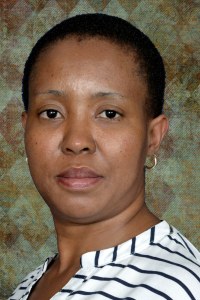Environmental justice, writes North-West University (NWU) senior lecturer and researcher Dr Kesolofetse Lefenya, entails social transformation directed towards meeting basic human needs and enhancing the quality of life, environmental protection and democracy.
Dr Lefenya writes that, despite the latter, South Africa is experiencing intensifying public-interest litigation between state organs, private entities and civil environmental-awareness groups.
Dr Lefenya recently presented a paper on public-interest litigation as an instrument to advance environmental justice and sustainability in South Africa at the recent annual Southern African Law Teachers Conference.
Dr Lefenya’s research paper assessed the effectiveness of the current practices and mechanisms set to enhance environmental justice and sustainability. Her assessment was carried out by, firstly, conceptualising the idea of environmental justice and sustainability. Secondly, she gave an account of several case studies in which litigation has been used as a remedy, and lastly, she outlined possible ways of improving the environmental policy regime.
“Justice is often about how policies are decided – procedural justice – and what comes from decisions and actions – consequentialist justice,” she says.
“To realise procedural justice, people’s rights should be respected during decision-making, and individuals and communities affected by decisions should be allowed to participate in the decision-making process. Environmental justice thus requires that people affected by pollution have a say in how that pollution is reduced or prevented, and it requires that affected people be allowed to participate in determining who benefits, and how, from policies to correct past pollution.”
According to Dr Lefenya, justice is realised when members of the public receive treatment that is appropriate to their circumstances. She further asserts that justice is about determining to whom rights are owed and to whom associated duties should be assigned. It is also about how much of the burden of protecting those rights every actor with duties should bear.

Dr Kesolofetse Lefenya.
